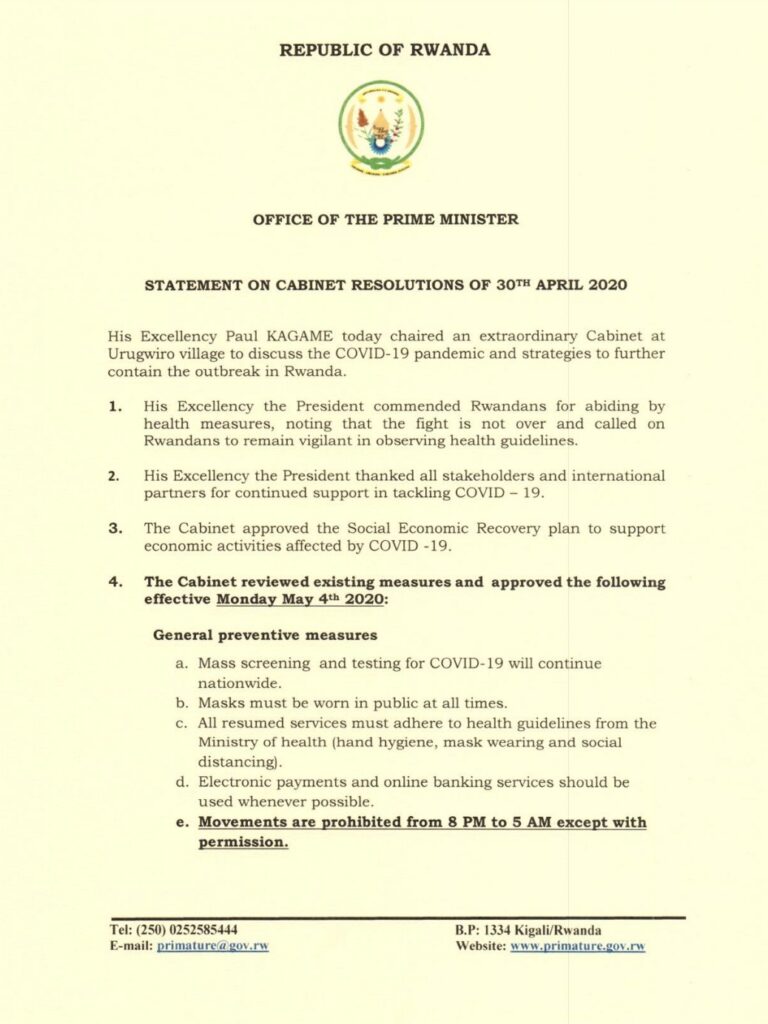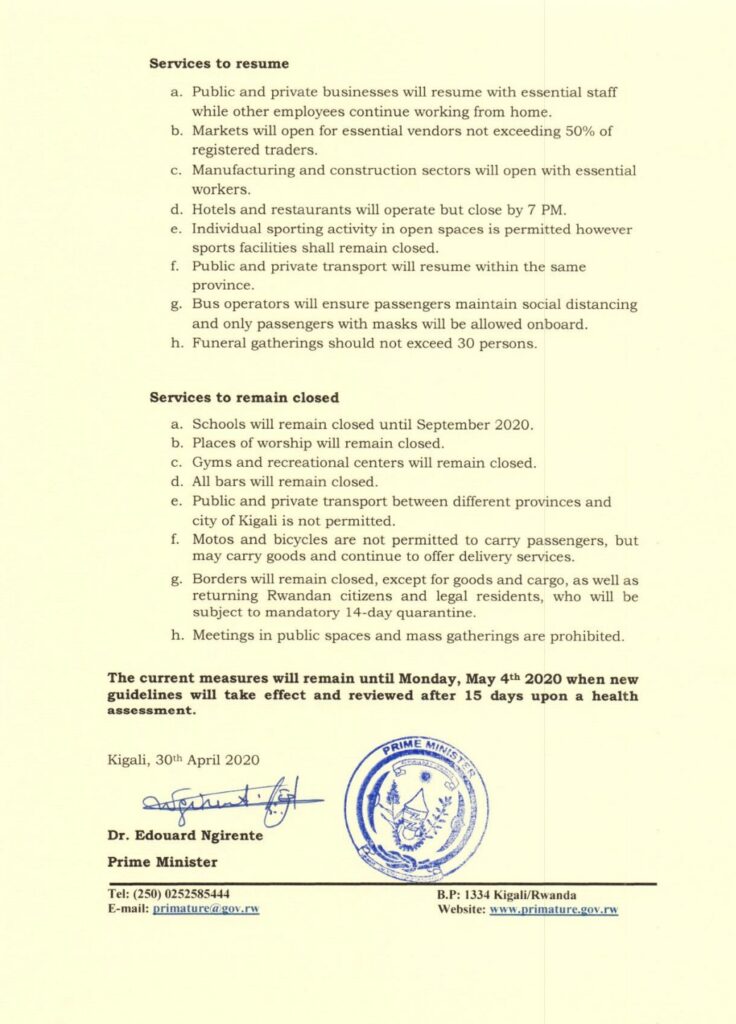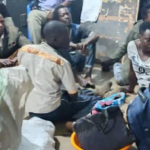President Paul Kagame of Rwanda on Thursday 30th April chaired a much-awaited extraordinary cabinet meeting which resolved to partially ease the over 45-day lockdown allowing some businesses and economic activities to resume operations.
The new directives take effect on May 4th but with a set of guidelines and are subject to review after 15 days upon a health assessment. Get back to work, but cautiously, the guidelines seem to say.
Below are 10 guidelines issued post Cabinet meeting with an aim to ensure social distancing and other measures to curb COVID19 transmission.
1. Business resumption
To the relief of majority Rwandans, public and private businesses will resume operations on Monday 4th May with essential staff while other employees work from home. Restaurants and hotels will be among the businesses resuming but will be expected to close by 7 PM.
Bars and night clubs will have to wait a bit longer before they can resume operations. Manufacturing and construction sectors are among those resuming operations.
2. Wearing masks
Masks are to be worn at all times when stepping into public spaces, cabinet directed, instructing businesses such as public transport operators not to allow passengers who are not in compliance.
The Ministry of Health two weeks ago directed that masks are to be worn in public at all times and licensed over 20 local producers to mass-produce them and retail them at not more than Rwf 500. Do you have one?
3. Curfew between 8 PM and 5 AM
While the lockdown has been eased, members of the public are expected to be home by 8PM as movement is restricted between 8 PM and 5 AM except with permission.
4. Public and private transport
Operators of public transport such as buses can start their engines on Monday 4th May but have to ensure social distancing for their passengers. This means that they will have less than their usual carrying capacity to be in compliance. Moto bikes will not be allowed to carry passengers but can ferry goods. Private transport will also resume but restricted to the same city.

5. Markets reopened
Markets across the country will be open for essential vendors but cannot exceed 50 per cent of their registered vendors. This is to ensure social distancing is adhered to.
6. Schools and churches remain closed
Students will continue learning remotely from home as both public and private schools remain closed till September. Worshipers will also have to wait a little longer before they can congregate in their respective places of worship as they will remain closed. Meetings in public spaces and mass gatherings are also prohibited.
7. Individual sporting activities allowed, gyms not
Do you jog? Fitness enthusiasts will from Monday have the liberty to carry out individual sporting activity in open spaces such as jogging however sporting such as gymnasiums shall remain closed.
8. Limit to funeral participants
Funeral gatherings shall not exceed 30 mourners. Previously, during the lockdown, mourners were limited to 20.
9. Borders closed
The country’s borders remain closed except for cargo to allow imports and exports as well as returning Rwandans who will be subjected to a 14-day mandatory quarantine.

10. Mass screening
The partial lifting of the lockdown however does not mean that the fight against COVID-19 is over, the Rwandan government will continue mass screening across the country and expects members of the public to continue observing guidelines such as hand washing, social distancing as well as report in the event one has symptoms.
Rwanda has 243 confirmed coronavirus cases so far, 104 recoveries and no Deaths yet.
![]()




























